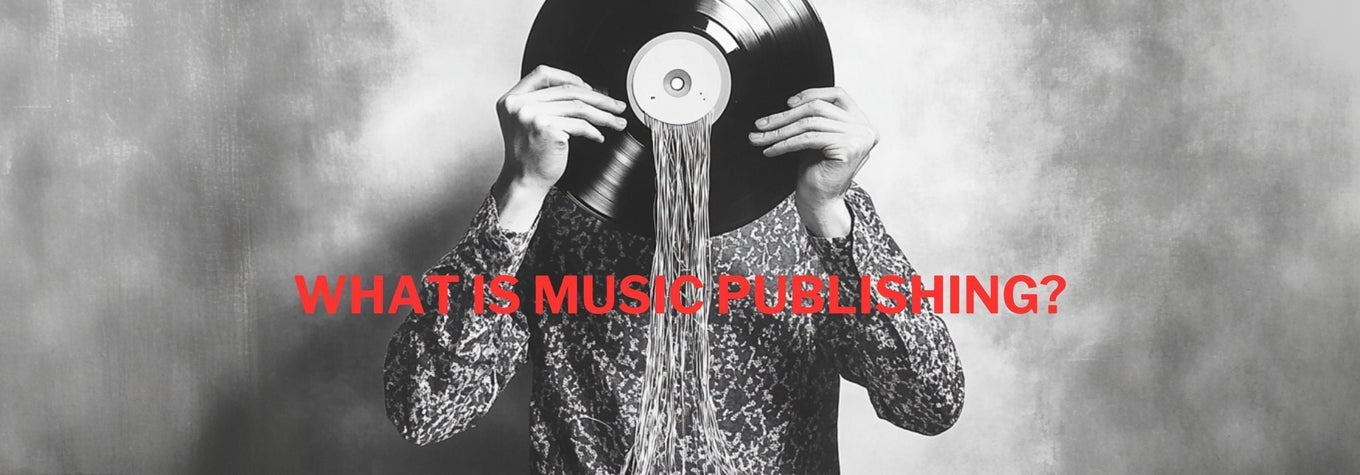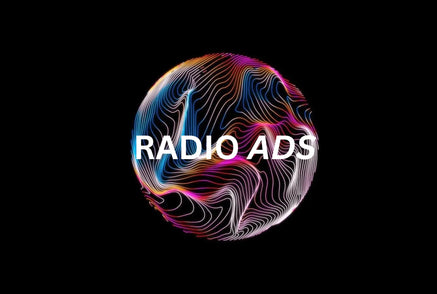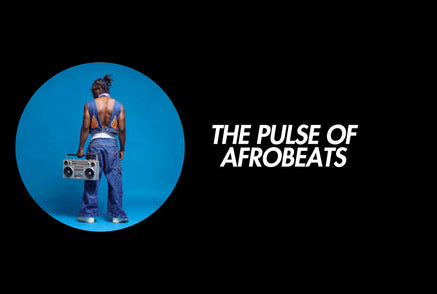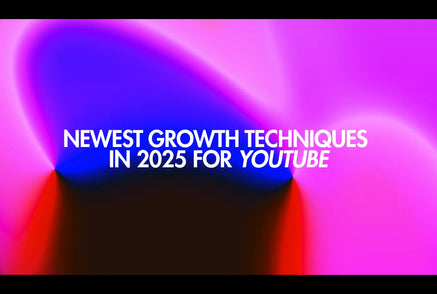Essentials of Music Publishing in 2025
In the era of digital music streaming platforms dominating the industry, traditional album sales have moved to the background. Since musicians can set up profiles on different platforms and share their tracks without bureaucracy and long waiting, traditional music publishing becomes inconspicuous. Today, it takes a few clicks to find:
-
Classic trademark tracks from Eminem, 2Pac, and other legendary rappers.
-
Official and unofficial remixes of your favorite songs.
-
Official soundtracks for movies, shows, TV series, etc.
The first time, it seems like the music industry is getting rid of traditional publishing, but it's a misconception. Successful publishing allows musicians to receive royalties, get high engagement, and become recognizable among other performers in the genre—beginners who only enter the world of music and don't understand all the nuances yet. It's essential to understand the nuances about performance royalties, publishing royalties, and mechanical royalties on platforms like Spotify and Apple Music and know why it's essential to cooperate with music publishing companies to have more career opportunities in the future.
Our goal is to explain everything about music publishing so you will understand what publishing rights are, how to promote your music, and what types of music publishing exist in the world of music business. Even though you decided to release music independently, you may change your mind after reading this article.
|
Type of Publishing |
Description |
Key Takeaways |
|
Self-Publishing |
Artists retain full ownership of their music and handle all aspects of publishing themselves. |
Full control over rights and royalties, but requires more work on administration, licensing, and promotion. |
|
Traditional Publishing |
A publisher acquires partial ownership and manages the rights, licensing, and royalties. |
Provides professional management, but artists share royalties and often have less control. |
|
Co-Publishing |
Ownership is shared between the artist and publisher. The publisher also holds administration and licensing. |
Allows for shared control and ownership and offers support in licensing and promotion. |
|
Administration Publishing |
A publisher manages rights and collects royalties on behalf of the artist without taking ownership. |
Artists retain full ownership while benefiting from royalty collection and administrative support. |
|
Sub-Publishing |
A local publisher handles rights in specific territories on behalf of a primary publisher. |
Expands an artist's reach internationally, ideal for licensing in foreign markets. |
|
Sync Licensing |
A publisher or artist licenses music specifically for use on TV, in movies, or in ads. |
Generates additional revenue streams, ideal for music placement in various media formats. |
|
Library or Production Music |
Music created specifically for licensing in film, TV, ads, and more, often with non-exclusive rights. |
Quick monetization through recurring licenses, suited for background and commercial uses. |
Have a look at the most common types of music publishing and understand the difference between them.
What Is Music Publishing
Today, in the world of the music business, music publishing is more than just uploading a song on a platform. Music publishing is also about promoting and controlling the monetization of your tracks. For example, publishing includes controlling the royalty collection, copyright registration (showing who owns the track), and even negotiating about licensing. Cooperation with music publishers helps you to increase income, sign with big companies, and make sure your music is registered according to current legal standards. Music publishers become intermediaries between musicians and various organizations when it comes to license purchasing, collaborating, or signing a publishing deal.
Do you Need a Music Publisher?
The role of a music publisher is often underestimated because the artist always stands under the spotlight, and the publisher only receives honorable mentions from time to time. Still, this person plays an essential role in the overall success, being responsible for the music publishing process and revenue collection. Publishers, as it seems, make the life of musicians easier, as they cover a solid part of the job, except one detail. They own 50% of the track, including the controlling interests.
A good music publisher becomes a manager, organizing the career of the musician, including song pitching, negotiation with potential partners, and scouting for new career opportunities. A good music publisher who works hard to keep your career going, helping you advance more and more, will likely push a co-publishing deal. It means the songwriter only gives up 25% of the song, which is not more than administrative organizations that also provide publishing services.
That's where the question "Do you need a publisher?" becomes existential, as it's not just about getting your tracks under the spotlight, but also making a long-term investment in your success. Despite the fact that such specialists own a part of the rights to your music, they can push you from the lowest point (if you already have something but weren't able to present it), or make a start of your career slightly easier. However, if you already have connections that help you make your music commercially successful and push yourself up the career ladder, you may not need assistance.
Music promotion is another option for independent artists and songwriters who are looking for an additional boost and career development. By boosting your presence on platforms like Apple Music with focused promotion, you establish connections with your audience, jump on top spots of charts and ratings, and become one step closer to becoming a top performer.
Essentials About Music Royalties
Royalties collection is one of many tasks publishers do while cooperating with musicians. Why it's so crucial? Proper royalty collection helps artists get all the desired income. Depending on how the music is used, artists get three types of royalties:
-
Performance royalties are generated from live performances like radio plays, music shows, and live concerts.
-
Mechanical royalties are created from selling physical copies (CDs and vinyl) + digital streams.
-
Sync licensing royalties are generated every time the music appears in commercials, TV shows, movies, TV series, video games, or any type of AV media.
Sometimes, artists manage to control all the royalties by themselves, but music publishing is more complicated than people can imagine. The ability to control all the sources of royalties simultaneously may be difficult for musicians. That's why they need music publishers who take responsibility for proper royalty distribution and control the overall revenue.
Why Is Copyright Important for Musicians?
Neglecting copyright is something you should not do. Copyright law prevents others from using your intellectual property without permission. For example, Sync licensing, which was created specifically for such purposes, allows artists to place music in various shows, movies, ads, and other formats. They get revenue from every placement, which directly involves the overall revenue. TV syncs are usually the lowest as they allow artists to get no more than $5k for new musicians. Ads, on the other hand, are the most expensive, as the final price may rise to $300k. It depends on the artist's status and the size of the company that purchases the license.
Explaining Various Types of Music Publishing
Once we define music publishing and highlight its importance in the music business, let's discuss various types of publishing. Depending on needs, goals, and other factors, musicians have to choose one of the following options to release music. Depending on musician's preferences and the way they want their music to be managed, artists choose different types of agreements to release tracks.
Classic Music Publishing
A traditional deal involves signing a deal with a publishing company. After the signing, the company gains the right to use songs for specific purposes and takes the administrative and business side of the artist's career, dealing with copyright registrations, licensing, collecting royalties, and splitting them (usually 50/50). Also, musicians receive additional income from earnings generated from using their music in promos, videos, etc.
Administration Agreement
Another type of music publishing is called administration agreement. It's used when a songwriter wants to have full ownership of his property but still looks for assistance managing their songs and catalogs. The administration agreement allows you to have a personal assistant. This person takes care of the paperwork, legal aspects of music publishing, and small details that show up during these processes. With an administration agreement, you register a copyright and collect royalties, but still receive the full income your music has generated. The specialists pay attention to every detail (for example, how long the agreement lasts, what the specific license offers, etc.).
Co-Publishing Agreement
When sides sign a co-publishing agreement, a songwriter shares a part of composition ownership with the company responsible for publishing. When this agreement comes into effect, the publisher takes responsibility for promotion, collaboration, and seeking opportunities to make the music heard. This person works on building a marketing strategy, pushing your music not only on social media and streaming services, but also via other options like paid ads.
A co-publishing agreement makes the difference for beginners who don't have connections in the music business. don't know how music publishing works, but still want to make themselves heard. You have to share a part of the revenue with the publisher and receive better promotion opportunities instead. Moreover, you ensure your music is licensed and nobody would break the music copyright law that easily. Depending on the responsibilities and contribution of each part, you can negotiate a percentage of the revenue for each part.
How Music Publishing Works?
After creating a song, the artist goes to the agreement and passes the track to the publisher. The specialists have to pitch the music to potential listeners, get appropriate licenses (for example, for live performances), promote, and collect royalties. Basically, a music publisher is an administrator responsible for the artist's career. Whether it's about documents, promotion activities, marketing campaigns, or royalties collection, it's all on the publisher. Still, musicians also take advantage of their visibility and use social media for promotion. They also choose the best music streaming platforms to appear in charts and establish dominance in the genre.
Artists like 21 Savage, Eminem, and Metro Boomin make people go crazy after announcing their next show. They don't need an extra push to notify people about their performances. You may not be as popular at the beginning, so make sure you have additional instruments for promotion. Organic promotion from Artist Push is a good option to bring you more organic streams and increase your audience. Start with smaller packages and move on, using more powerful options later.
Is Traditional Music Publishing Over?
Today, music publishing takes a twist toward digital promotion. Publishers use all capabilities of distribution platforms and streaming services to share the product and establish a presence everywhere from SoundClound to Tidal and Youtube music. Moreover, music doesn't exist without a visual part today, so tracks are now used in TV shows, ads, movies, and other types of visual content. For example, publishers have to make sure their clients get the royalties for such collaborations.
Since music publishing changes, artists have to adapt to rapid updates and reshape their approach to achieve results with their music. With that, you can try new promotion approaches on top of classic methods. It will help you reach a new audience and make your music heard on new platforms. Here, we offer you:
-
Radio advertising package to make music recognizable.
-
Music blog publication to attract genre lovers, adding a post on how the music works.
-
Music PR package: combined effort with US radio stations and blog placement.
-
Youtube promotion. Multiple options to make your music heard on one of the largest platforms with the biggest audience.
Choose the most relevant option depending on your goals and see the first results in a few days, as organic reach will pay off.
It's not the last upgrade, as we should expect more capabilities for publishers and musicians soon. The landscape is evolving, and it's complicated to predict what will come next. Whatever it will be, publishers will analyze the changes, adapt their strategies, and keep working to maximize creative efforts and make the music heard by millions of listeners. A good way to stay updated about the latest changes in the world of music publishing is to attend events like the Music Ally Publishing Summit. Specialists discuss various problems, including the impact of AI on the music publishing business and how technologies will change the business overall.
Who is a publishing administrator?
What is a Performance Rights Organization?
What makes value for music publishers?
Do you need a music publisher in your career?
Is music promotion important for music publishing?























